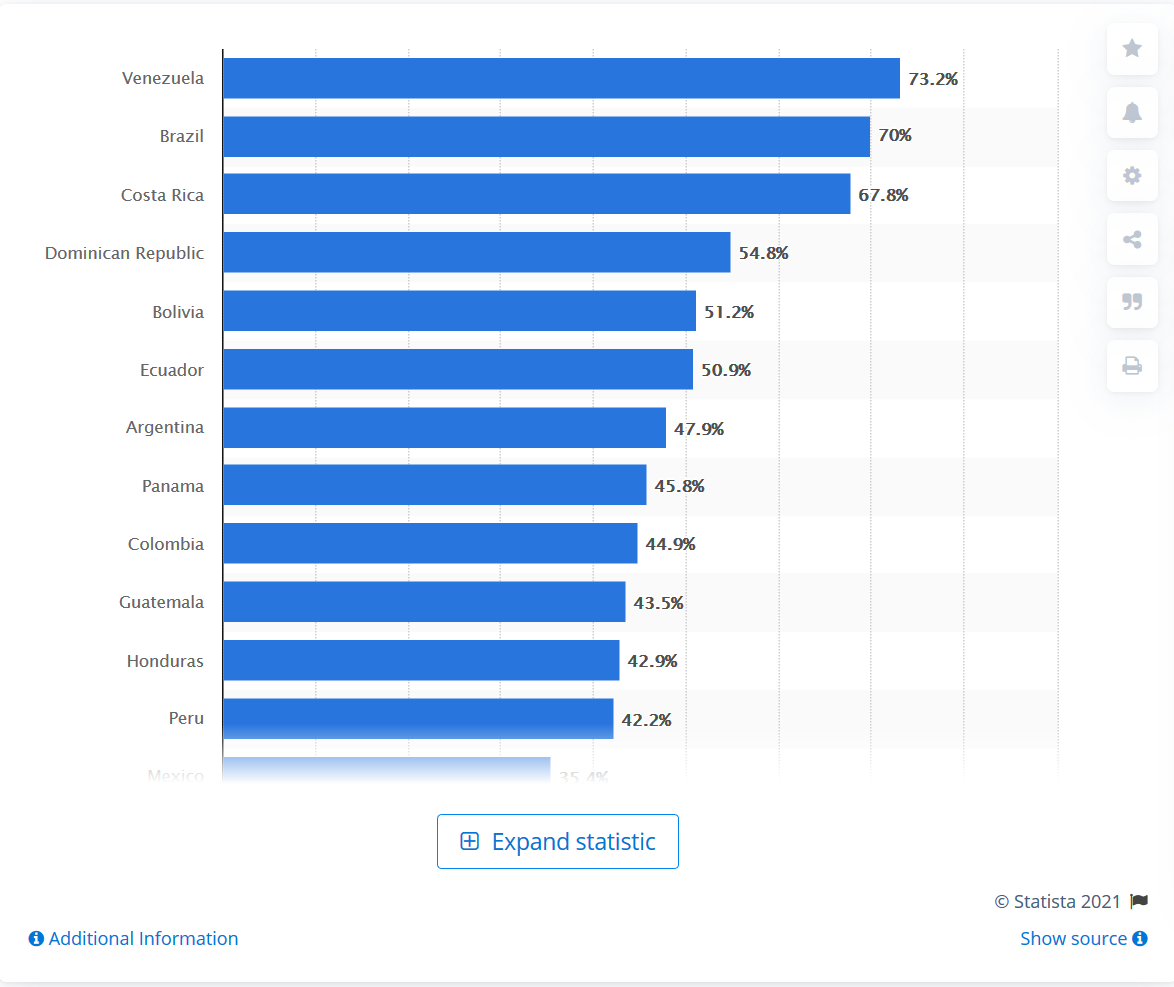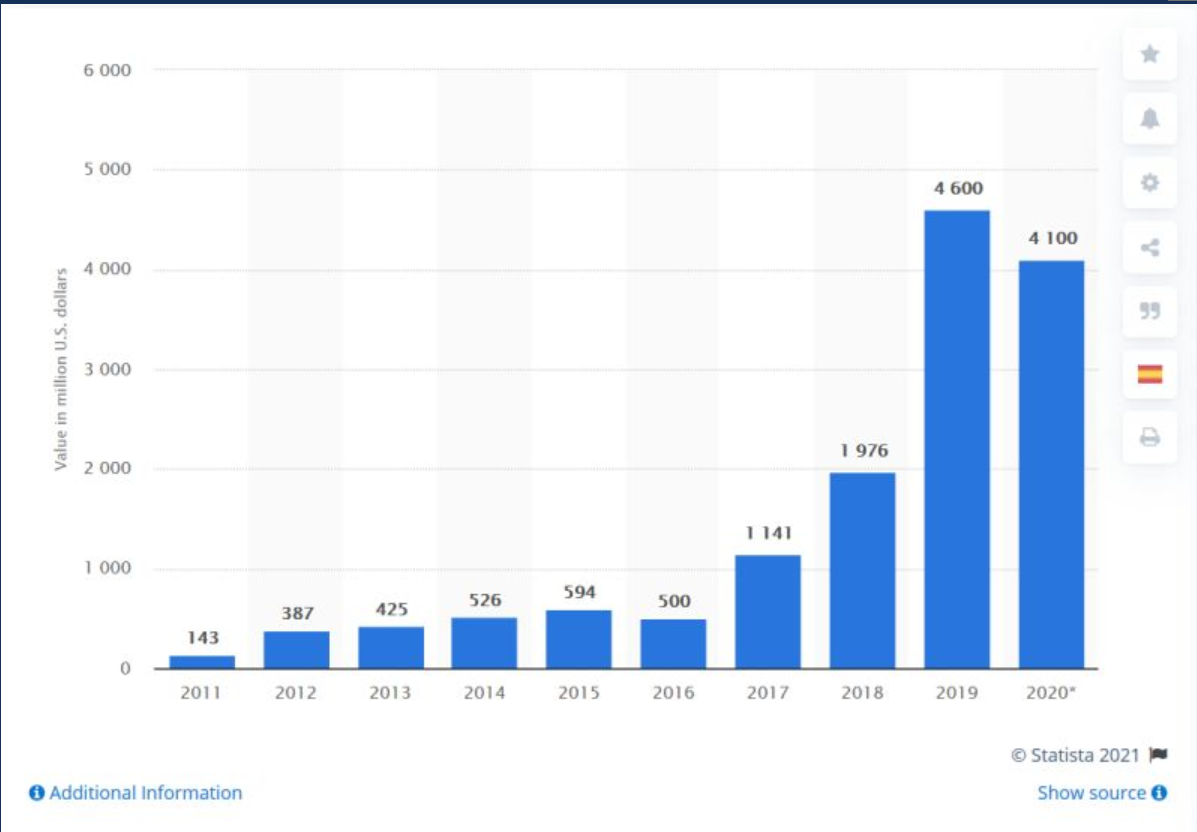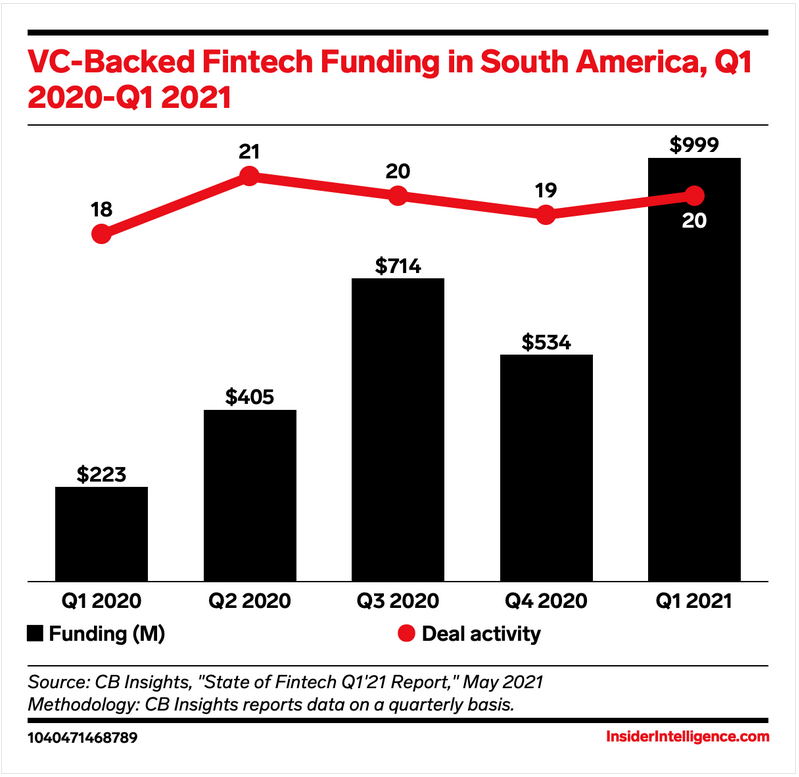Should I Invest in Latin America?
“Should I invest in Latin America?”
Yes.
Let me use the rest of the article to explain why.
Banking in Latin America
Latin America lacks traditional banking options that are more common in North America. Venezuela and Brazil host populations with the highest percentage of bank accounts; 73% of Venezuelans and 70% of Brazilians have accounts at a bank or financial institution.

The lack of financial options provides opportunity for alternative money solutions. Fintech startup, Uala, serves as one example.
Six months after launching in Mexico, Uala had successfully issued over 100,000 debit cards throughout the Latin American country. The 2020’s pandemic fueled use of debit cards throughout Argentina, where Uala claims over 2.5 million card holders.
Latin America’s steady rise in digital transactions coincides with Uala’s ability to reduce the need for cash or a traditional bank account. Debit cards were used in about 11% of Latin American e-commerce transactions in 2020. That’s projected to increase in coming years.
Amid the pandemic, 84% of those in Brazil, Colombia, Costa Rica, and the Dominican Republic championed contactless payments. 78% of those surveyed voiced they would continue the trend after the pandemic.
Read more: Why Remittances Are Important in Mexico
Investing in Latin America
Entrepreneurs as well as investors take interest in Latin America. Investing in Latin America has taken a huge upward turn in the last 10 years.

In 2020, investment in Latin American startups exceeded $4 billion. Divibank (founded during the pandemic) offers quick and affordable capital to startups and SMEs throughout Latin America.
Divibank has signed more than 50 new clients in the last six months, taking advantage of the arduous and often unsuccessful process of acquiring loans and funds from traditional banking institutions in Latin America. Fintech brands, emerging throughout Latin America, increasingly attract the interest of investors.
Divibank, fostering growth throughout Latin America, recently closed a round of seed funding with San Francisco’s Better Tomorrow Ventures (BTV). BTV investors quickly understood Divibank’s desire to seize present opportunity.
Lack of funding options were keeping many entrepreneurs and competing business models out of the market. The lack of funding, growth of e-commerce in Latin America in the last five to ten years, and recent willingness to adopt mobile commerce during the pandemic, makes an alternative like Divibank a savior for startups and an undeniable investment for BTV, which describes Latin America as a “massive untapped market.”
Read more: Marketing in Latin America Since Covid
Fintech in Latin America
The rise of Nubank serves as a regional example of fintech’s explosion. Nubank was started in Brazil, a place that has a tradition of hosting few banking options and exorbitant fees. Colombian-born founder sought a solution for a place where five banks accounted for over 80% of Brazil’s assets, one-third of the population was unbanked, and annual credit card rates exceeded 300%.
Nubank estimates it saved existing customers about $2 billion in would-of-been fees. Nubank received funding from Brazilian-based VC, Kaszek. Kaszek has backed 91 companies, securing over $10 billion in capital. Fintech companies comprise 20 out of Kaszek’s 71 company-based investments .Aside from Nubank, Kaszek has invested in Creditas and Bitso, a cryptocurrency startup.
Nubank, with an estimated 34 million global customers, could make an eventual appearance on the NYSE. However, it is soon to see competition within Latin America, for investing in Latin America is no longer a secret.
SoftBank launched a $2 billion LATAM investment fund in 2019. Santander is also making moves within Latin America as South American fintechs raised close to $1 billion in 2021’s first quarter – a jump of more than 340% from a year prior.

Nubank, launched back in 2014, attracts customers with an unconventional method of onboarding – without requiring them to provide money upfront, a model used to gain easier entry to new markets.
Barriers to Entry
So, if it appears to be so convincing, what are the barriers to entry regarding investing in Latin America? To start, Latin America is unlike a market such as the United States due to vast differences in language and culture.
Localization
Often, existing brands in America approach us to help them enter new Latin American markets. Yes, it often involves English-to-Spanish translation but that’s oversimplified.
Successful marketing and investing in Latin America requires sensitivity and awareness regarding localization. Spanish language and culture differs throughout Latin America; some expressions and words vary depending on region.
Localization involves adaptation, transferring content to target consumers in specific countries or regions. It’s not a literal translation, for such endeavors are destined to fail in LatAm. Rather, localization fuses with the process of transcreation, accounting for language as well as culture.
Read more: What is Transcreation
Contact Altura Interactive about investing in Latin America. We help existing startups and companies target Hispanic customers in the United States, Latin America, and beyond. There’s plenty of opportunity for brands that cater to Hispanics, so let’s start a conversation about your customized campaign.
sources:





